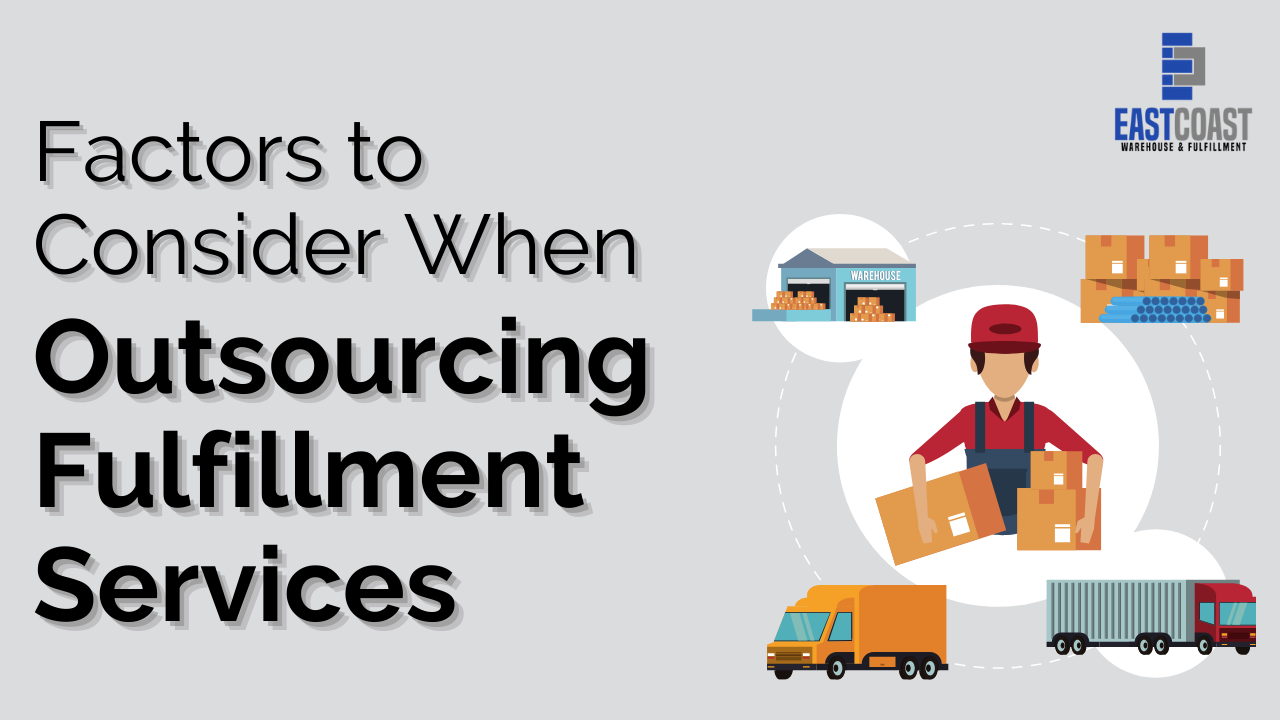
Factors to Consider When Outsourcing Fulfillment Services
Choosing the right fulfillment partner for your ecommerce business is a critical decision that can significantly impact your success. In this episode, we will delve into the key factors you should consider when evaluating potential fulfillment partners. Joining me today is Frank, our resident expert on fulfillment services, who will provide valuable insights into this important aspect of your business.
Factors in the Fulfillment Quest:
When assessing potential fulfillment partners, there are several essential factors to take into account:
1. SLA Agreement: Start by reviewing the Service Level Agreement (SLA) offered by the fulfillment partner. Determine if they guarantee on-time order shipments and, importantly, understand the repercussions if they fail to meet these commitments.
2. Accuracy Rate: The accuracy of order processing is crucial. You’ll want to evaluate how precisely potential partners pick, pack, and ship orders. Even minor errors can result in customer dissatisfaction and increased costs, so accuracy is paramount.
3. Customer Service: The quality of customer service provided by your fulfillment partner can significantly impact your business. Investigate how the 3PL structures its customer service. Are they reliant on call centers, or do they offer dedicated account specialists? Consider their responsiveness to inquiries and issue resolution.
4. Technology: In today’s digital age, technology plays a pivotal role in fulfillment operations. Look for a fulfillment partner with advanced technology solutions. Do they provide an online portal for easy order tracking? Can they handle processes like Advanced Shipping Notifications (ASN)? Is their inventory management transparent and efficient?
The Advantage of a Single Location:
While multiple warehouses and locations may seem advantageous, it’s essential to consider the potential drawbacks. In some cases, working with a smaller 3PL with a single location may be a better choice due to the following reasons:
Cost and Shrinkage: Multiple locations mean more inventory to manage, which can result in higher costs and an increased risk of inventory shrinkage. Inventory shrinkage refers to lost inventory, and larger 3PLs with multiple locations often struggle to coordinate effectively, leading to substantial losses.
Shipping Issues: Larger 3PLs with expansive reach can make costly mistakes when distributing inventory across the country. This can result in significantly higher shipping costs for your business.
Choosing a fulfillment partner that prioritizes the factors listed above can yield substantial cost savings in the long run, outweighing any potential advantages of having inventory stored in multiple locations.
Discussing Repercussions:
Understanding the consequences of a fulfillment partner’s performance on customer satisfaction is crucial. Late deliveries or incorrect orders can have a detrimental impact on your brand reputation and your bottom line.
Late Orders and Incorrect Orders: Late orders not only lead to unhappy customers but also tarnish your brand’s reputation. Additionally, if you’re shipping to platforms like Amazon, mistakes can result in penalties for your company. Some e-commerce businesses have even been forced to shut down due to fulfillment partner inadequacies. It’s essential to research thoroughly, read reviews, and speak with multiple references when evaluating potential partners.
Elevating the Fulfillment Experience – Unknown Intricacies:
There are several lesser-known aspects of what a fulfillment center can do to benefit your e-commerce business:
Handling Perishable Goods: If your business involves selling perishable goods, it’s imperative that your 3PL can record expiration dates within their Warehouse Management System (WMS) and ship accordingly. This ensures that products with limited shelf lives are dispatched within the specified timeframe, preventing significant losses.
Optimizing Inventory Forecasting: Advanced 3PL technology can optimize your inventory forecasting by monitoring levels and alerting you when they’re running low. This proactive approach can help prevent stockouts and ensure a smoother supply chain.
Rate Shopping: Some 3PLs offer rate shopping services, helping you find the most cost-effective or fastest shipping methods among various carriers, depending on your preferences and needs.
Supply Tracking: A reputable 3PL can also track your supplies, such as kitting pieces and shipping materials. They can assist you in finding the correct packaging for your product, whether it’s standard packaging or branded solutions.
Forming a Harmonious Partnership:
In conclusion, selecting the right fulfillment partner is not merely a business transaction; it’s a strategic partnership. The decision you make can profoundly affect your e-commerce journey. To enhance your chances of success, be diligent in your research, prioritize the factors we’ve discussed, and choose a partner who aligns with your business goals and values. By doing so, you’ll set the stage for a successful and efficient e-commerce operation.
